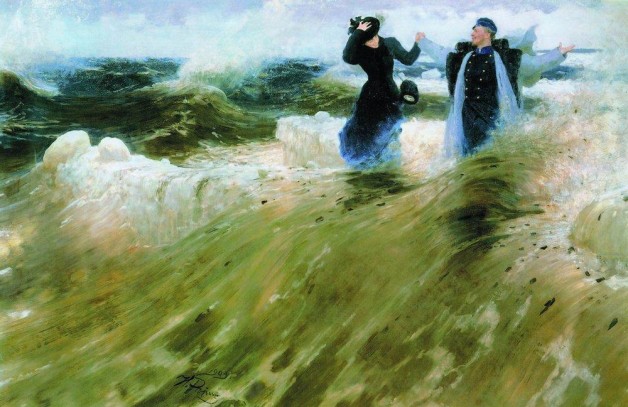I don’t know if God exists, but if it does, I don’t think it fits inside your little box.
For many Americans today, religion resembles a little box: compact, constricted, and closed. To be religious means being bound by a set of rules and regulations, a collection of dogmas and doctrines that replace freedom with faith.
Rather than take on the hard task of grappling with a chaotic and complicated world, “religious people” have made the choice to climb inside a secure, structured box that gives them the order they so desperately crave . . . and closes them off from reality and from their fellow men.
But the agnostic accusation goes further: religion isn’t just a bad way to cope, it’s also a bad way to think. Dogmas don’t just trap man in a behavioral box, they trap God—if there is one—in a conceptual box. Where do Catholics get off saying that God is exactly the way they say he is, and that all Buddhists and Hindus and Muslims and Jews are wrong? How can God be boxed in by the limits of any one creed?
The objection has teeth. God is infinite, unlimited, incomprehensible, and eternal. He’s greater than anything we can conceive. He transcends our highest thoughts and outstrips our wildest imagination. In short, God bursts the bounds of every box we might try to put him in.
But even though we cannot force God into a box of our own making, who would dare say that God cannot force himself into a box of his own making? If God is what the agnostic says he might be, then God can “box himself in” if he so chooses.
This is exactly the Christian claim. In the Incarnation of Jesus Christ, God entered the box of creation. The Word became flesh and dwelt among us. He walked the roads of Palestine; he ate our bread, drank our wine, and spoke to us—in our own language—about who he is. In the person of Jesus Christ, the unlimited God enters the limits of creation to liberate us from our own limitations. God entered the box he made—the box of our daily cares and worries, the box of our sorrows and tragedies—to offer us a new, joyful life with him outside that box.
Catholic dogma isn’t true because God is the way we say he is, it’s true because God is the way he says he is. Divine revelation opens the doors of our hearts to know God in a way we could never have dreamed of otherwise. “Truth himself speaks truly, or there’s nothing true.”
True Christianity is neither compact, nor constricted, nor closed. True Christianity is unbounded freedom. It is the freedom of being invited by God—Father, Son and Holy Spirit—to know him, to love him, and to receive him.
Today we Americans celebrate our freedom as a country. Every day, in the box of the confessional, Catholics celebrate the greatest freedom imaginable. And the God of freedom waits for us, every day, in every Catholic church, in a box with a lit candle beside it. The God of truth does fit in a box, and this truth will set you free.
✠
Image: Ilya Repin, What a Freedom







